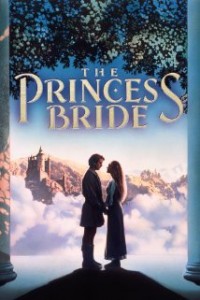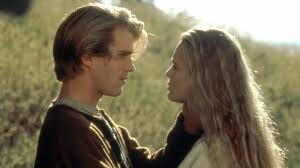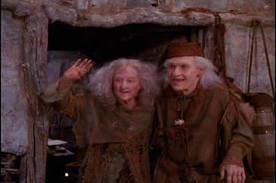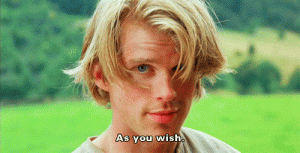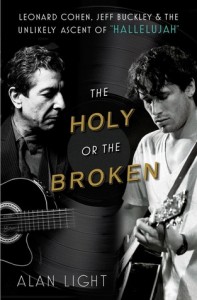
You can never have too much Data.
Not so very long ago, our beloved Mary Ann Rivers knocked all our Wonkomance socks off with her post on using classical appeals to back up your wonky love story. This post, which involved Shakespeare, Aristotle, and Star Trek: The Next Generation, was so brilliant that I had to read it three times.
“I want to lean against a marble column and talk about this in just a little bit more depth than the six elements of poetics,” Mary Ann wrote, “because this is where I begin to suggest a complex and useful craft tool for writing and responding to successful wonkomance. Namely, that a story can be epically, immensely wonked and be satisfying to an extremely wide audience of readers, possibly for hundreds of years, as long as it forwards a winning argument.”
Then she said a number of clever things about logos, pathos, and ethos that mostly went over my head, but I didn’t mind because I was soothed by the Data and Picard photos.
Then I promptly forgot and went back to bashing my head against a novella I was trying to write.
In due time, and with a lot of hand-holding and loving nudges from Serena Bell and Mary Ann both, I finished the first draft of this novella and then started thinking about how to revise it. I read it and filled my Scrivener document with questions and imperatives. “What is this scene even about, anyway?” “Make this make more sense.” “This chapter is all over the place. Fucking hell, woman!” Times four hundred. Serena asked me some very smart questions. I had no idea what the answers were.
I hate this book I hate this book I hate this book, I thought. I sent Mary Ann an email that was mostly like this: “? o_0 :-( !!!” She wrote back, “Remember that you had an argument? Maybe look at that.”
Beams of rainbow light broke through the cloud cover and washed the prairie in glorious brilliance.

Like this
An argument! Right! I did have one. In fact, this was a story that I’d written for the express purpose of making an argument. This was a story I hadn’t been able to stop thinking about writing, that I’d badgered my agent and editor into letting me write, that I’d blogged about and daydreamed about, synopsized and planned, and yet somehow I had forgotten all of that, because the act of writing it had clobbered me over the head so hard that my brain fell out.
But once I remembered that I had an argument, everything fell into place. And I mean that. EVERYTHING. I sat down, wrote out my argument longhand, wrote down what the evidence was for my argument, and then went through my Scrivener file and answered every single question I had asked myself, easily. All in the course of about two hours.
It was miraculous. Easiest revision ever.
Then I went and read Mary Ann’s post again and understood it more clearly.
So let’s look at this argument business a little more closely, shall we? Because it turns out to be an interesting way to think about not only writing but also reading and wonkomance.
To make a winning argument, Mary Ann / Aristotle suggests that the author has to
- make a convincing chain of evidence to support it (logos)
- appeal to the reader’s emotions so that they will either feel good about accepting the argument or feel bad about not accepting it (or both — this is pathos), and
- appeal to the reader’s sense that the author — or a major element of the story — can be trusted (ethos).
So one of the first things that occurred to me, once I started thinking about argument, was that category romance is really good at argument.
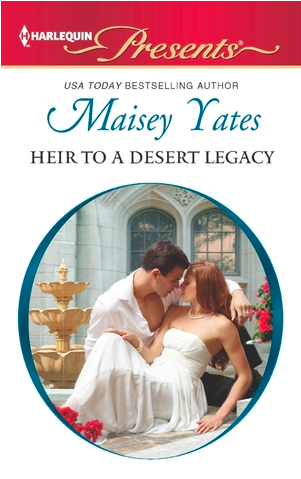
Yes, even this, she will do. The poor woman.
I recently read Maisey Yates’s Heir To a Desert Legacy, which is a sheikh book in which the heroine is a graduate student in physics who’s recently given birth to her half sister’s baby. The heroine agreed to be a surrogate, partly from love of family and partly because she needed the money. It just so happens that her half sister was married to the ruler of one of those made-up Harlequin Presents Middle Eastern countries, and it also just so happens that the half sister and this ruler died in a car accident on their way to pick up the baby. So the story opens with a very angry, freshly minted sheikh knocking on the door of the heroine’s Portland apartment to retrieve the heir to his throne (whom — it just so happens — he wasn’t aware existed). And the argument begins immediately — both literally, in the sense that the heroine won’t give him the baby, and figuratively, in the sense that Yates starts telling us what this book is going to convince us of or die trying.
The argument of the first half of the book is about love and how it changes the heroine. It goes like this:
(1) It is difficult not to love a child who you’ve grown inside your body and cared for from birth.
You can tell yourself that you’re just in it for the money, you’re just caring for the baby until you figure out what’s next — but the truth is, even though you don’t know what you’re doing and you’re tired and fat and your breasts are leaking, you would rather stab a stranger in the eye than let him take this baby from you. Which is how you begin to figure out that you love him. (The baby. Not the stranger. That part comes later.)
(2) Once you fall in love, all your priorities change.
You’ll follow the baby to a made-up Middle Eastern country, even if it means disrupting your doctoral work. You’ll pose as his governess. You’ll even enter into a marriage of convenience with a difficult, assholeish sheik, if the alternative is to have to leave the baby behind. (You saw that coming, right?)
(3) Once you understand how love can change your life for the better, you will seek love instead of living in fear.
Even if you’ve spent most of your life avoiding risk, love can change you–very quickly–into someone who’s willing to go toe-to-toe with the angsty sheikh and demand that he crack himself open, turn himself inside out, and refashion himself into a lovable man. And also that he have sex with you.
Now, this is just half of the argument. Part II is the sheik’s part, but I’m not going to go into that, because I don’t want to bore y’all. (Not that the sheikh is boring. He’s terribly broken in that way that Yates does so well.) My point is that the argument drives the whole story, and everything serves it: the action, the characters, the emotion, the turning points, the sex. Category romance is an efficient argument-delivery machine.
What’s so interesting to me, here, is two things: first, the idea that I might love an author’s work, love her characters, but hate her argument so much that I can’t even read her book. (Not the case here, but it happens.)
And second, the idea that I might dislike an author’s writing and her characters, her plot, and her style, and yet find her argument so fascinating, so convincing, that I can’t put her book down.
Both of those things happen to me, as a reader, on a pretty regular basis.
(It also helps to explain how entire lines of category romance don’t work for me as a reader. Category lines tend to promote clusters of arguments — Blaze books make arguments about sex, for example, while other lines might forward arguments about the value of sacrifice for love — and if I don’t want to engage with the arguments, I’m not going to like the books.)
The other way in which argument interests me is that it gives me a tool — again, as both reader and author — to pick apart a story. As a reader, I might say, “I love the argument and the emotion, but I could never trust the author after she slut-shamed so virulently in chapter 1.” That is, the ethos was off: the author lost my trust, and there was no way to get it back. This can happen, say, in a book with an infertility plot where the heroine miraculously gets pregnant at the end. “Fuck you,” many of us say, closing such a book. “I will never trust you again.” This is an ethos-based reaction to an ethos-rooted failure. The argument falls apart when the ethos fails the reader.
Or, say, “She’s trying to argue that true love can reform a bad man, but when he sleeps with the prostitute during the dark moment, she completely undermines his reform and sinks her own argument.” That’s a logos problem. You can’t build a chain of evidence and then take a giant pair of chain-cutters to it in the final third of the book — not if you want to keep your readers. The evidence has to be there, and it has to make sense.
In the case of Yates’s book, I’d say that I bought the argument but I wasn’t as affected by it as I might have been — the pathos wasn’t quite clicking for me, and I think this was because I needed more grounding in the heroine’s professional/social world in order to understand emotionally what she was giving up to be with the baby. She made me sniffly, but she could have torn out my heart and stomped on it, and if she’d done that, I’d have been more convinced and loved the book all the harder.
So those are good tools for reading and reviewing, offering one more way to think about what works and what doesn’t work in a story. As an author, moreover, I can give myself some emotional distance from feedback — and thereby use it more effectively — by asking myself “What part of the argument wasn’t working for this person? Is this an evidence problem, an emotional support problem, or a trust issue?”
And, as Mary Ann pointed out to me in an email conversation, argument is a great drafting tool. When you’re just trying to get words on the page, overwhelmed by everything you don’t know or don’t think you know about your book, it helps a great deal to know what it is that you’re trying to argue.
Looking at a romance from the point of view of argument rather than genre convention allows you to skip over all the crap about what characters are supposed to do, how they’re supposed to behave, what readers will and won’t tolerate. All you have to do is make a good argument. That’s it. Show me a clear argument, a logical chain of evidence, emotional support, and a trustworthy author, and I will show you a successful story — wonky or not.
So play with me here — can you analyze a recent reading or writing experience using this perspective? Does it open anything up that you’d missed the first time?
Oh, and I’ll share the argument of my upcoming novella in the comments.

